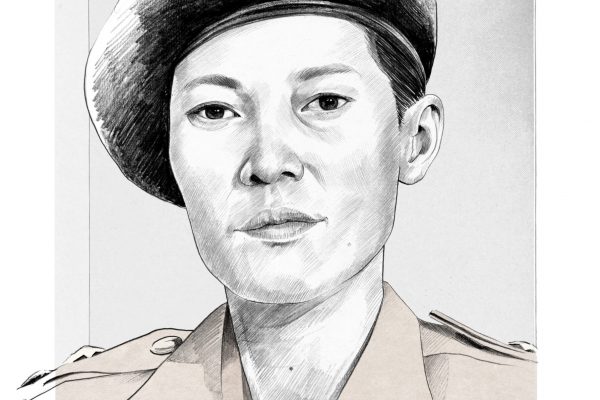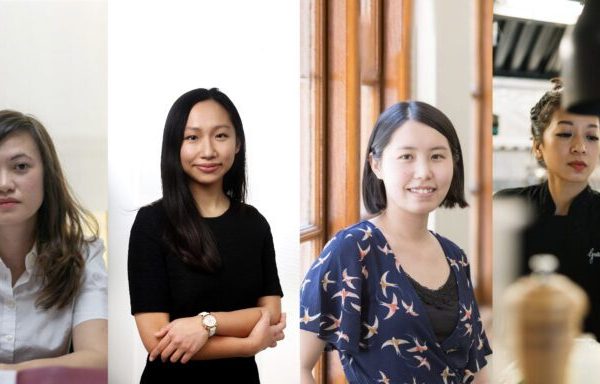Crisis on the horizon: Rohingya refugees say they are ‘living in fear’ of COVID-19 outbreak
In mid-April, a ship carrying 400 Rohingya refugees washed up along the shores of Cox’s Bazar, a port city in Bangladesh. The ship, whose passengers were mostly women and children, had originally set sail for Malaysia two months prior. But when they attempted to disembark, Malaysian authorities turned them away due to strict coronavirus immigration measures. They had no choice but to retrace their steps back to Bangladesh, where they had been living in the country’s refugee camps.
This recent tragedy highlights the plight of Rohingya refugees, who are often called “the world’s most persecuted people” by human rights activists. In Bangladesh, over 1.1 million of displaced migrants from Myanmar live across 34 overcrowded camps, located along the southeast border between Bangladesh and Myanmar. Collectively, these camps make up the world’s largest refugee resettlement.
Since the 1970s, hundreds of thousands of Rohingya refugees have fled to neighbouring Bangladesh to escape violence and persecution in their home country. The Muslim minority group has been denied citizenship in Myanmar, a majority Buddhist nation, where the government and many anti-Muslim Buddhist groups view the Rohingya as illegal migrants.
Amid the COVID-19 pandemic, Rohingya refugees in Bangladesh face even greater uncertainty. As of May 11, although there has yet to be an outbreak in a Rohingya refugee camp, many are worried about the lack of resources to deal with a health crisis. Beyond the camps, the country has seen 14,657 cases since early May.
Public policy experts have already cited several conditions – overcrowding, inadequate water and sewage treatment, insufficient food, few protective supplies – as major concerns, because they create a situation in which the virus could easily proliferate.
Over 1.1 million Rohingya live in packed conditions across 34 camps in Bangladesh. Credit: Moin Uddin.
Beyond basic necessities, limited access to information and fake news are also major problems. Since September 2019, Rohingya refugee camps have been under an internet blackout imposed by the Bangladeshi government.
Authorities have yet to officially comment on the reason, however, watchdog organisation Human Rights Watch has reported that local authorities cut internet-based communications in response to illegal activities by refugees.
Shafi Mohammed, a 31-year old Rohingya interpreter who lives with his wife and two sons in Kutupalong camp on the outskirts of Cox’s Bazar, says many refugees are “living in fear” that it is only a matter of time until of the COVID-19 pandemic hits them.
“People are catching it and dying [elsewhere in the country],” he says. “Rumours are going around because people are not getting good information due to the lack of internet access. And they cannot connect with loved ones who are still in Myanmar.”
“We have heard various types of fake news: [one rumour] is that the government will move us to a different camp where we will live in new houses; another that catching COVID-19 will not do anything to you – that you will just recover easily,” says 21-year-old Abdur*, a refugee who was born and raised in the camps after his parents fled Myanmar in the late 1990s.
Furthermore, all of Bangladesh’s Rohingya camps have been under “complete lockdown” since 10 April, meaning no entry or exit for its 1.1 million inhabitants.
The situation in the camp is not good. They don’t have any [sewage] sanitation, the water is not purified, they have few hygiene measures in place.
Abdur
To its credit, the United Nations Refugee Agency (UNHRA) has been working to prepare the camps since March by delivering medical supplies and laboratory equipment, as well as setting up 6,000 handwashing stations. In addition, various NGOs have distributed at least 500,000 bars of soap.
However, those like Abdur believe it’s not enough to prevent a major disaster due to poor sanitation and perpetually overcrowded conditions.
“We need hand sanitiser, test kits, masks, but we don’t have anything,” says Abdur, who secretly left the Ukhiya camp last year and now lives in Dhaka, the capital of Bangladesh.
“The situation in the camp is not good. They don’t have any [sewage] sanitation, the water is not purified, they have few hygiene measures in place,” he says, having spoken via landline with his parents and three brothers who still live in the camp.
Mohammed, the interpreter, echoes these concerns: “We live in small plastic sheds – a small room with my wife, two sons,” he says, adding that his home is roughly the size of a “hotel bathroom.”
Abdur adds that many people in the camp still don’t fully understand what the novel coronavirus really is, due to the internet blackouts. “I share information with them, somehow we manage,” he says. For now, many people are trying to stay inside, relying on food and supplies from the remaining NGOs, he adds.
Ro Sawyeddollah, a citizen journalist and Rohingya refugee living in Cox’s Bazar, says only five or six NGOs, including Medecins Sans Frontieres (Doctors Without Borders), in total have stayed on during the lockdown to provide food and primary health care. By comparison, there were around 98 NGOs operating across the camps last year before the outbreak.
Due to a shortage of support and the pandemic’s impact on supply chains, monthly food rations have been reduced. “Before the outbreak, people received 14 kilogrammes of rice per person each month, but now, we are receiving 12kg per person [less regularly].”
And until the world raises its voice with us, [our suffering] will not see an end.
Abdur
Human rights groups continue to voice concerns over the “humanitarian disaster” looming over Cox’s Bazar and the region. “The Bangladesh government is in a race against the clock to contain the spread of coronavirus, including in the Rohingya refugee camps,” Brad Adams, Asia director at Human Rights Watch, stated in a recent report.
For those like Abdur, time is ticking and fears continue to mount. “The whole world would cry if they could see what the Rohingya are facing now,” he says. “And until the world raises its voice with us, [our suffering] will not see an end.”
*Name changed to protect his identity
How to Help:
Here are some ways you can help with their cause.
– On charity fundraising platform Total Giving, to donate to the Coronavirus Emergency Support for Rohingya fund, a Rohingya-founded initiative distributes masks, hand soap and sanitiser kits to refugee camps.
– Visit and donate to Medecins Sans Frontieres (Doctors Without Borders) – one of the few NGOs still working in the camps, according to the refugees we spoke with.
– Learn more by visiting the UNHCR’s Rohingya emergency initiative to see how you can help those currently locked down in camps.

